Q+A with Bryan Pirolli
I met Bryan Pirolli years ago, and he was part of a trilogy when I was doing “research” for my late (and if I do say, great) Paris Pastry App, which I created with Heather Stimmler of Secrets of Paris. (After compiling and referencing hundreds of pastry shops in Paris, we eventually had to concede to rapidly changing, and challenging, technology and had to discontinue the app.) But what made it fun was Bryan’s involvement.
It’s not easy to go into a Paris bakery or pastry shop and take photos. You need a combination of savvy, familiarity, and chutzpah, and between the three of us—Heather taking notes, me taking notes and photos, and Bryan charming the staff—we did it, although a few times our collective charms didn’t work and we’d take our treats outside the shop, or to a nearby park, to photograph them.
Since then I’ve become friends with Bryan and watched as he went from charming the vendeuses in Paris bakeries to getting his doctorate at the Sorbonne. He’s a travel writer, and wrote a guide to travel writing, and has a tour company, The Gay Locals, for “…all travelers, LGBTQ+ and beyond” to do private tours, exploring the historical significance of arrondissements like the Marais and Montmartre, as well as itinerary planning. He recently penned Paris Like a Local travel guide, an insider’s guide to the city of light.
DL: Hi Bryan. Nice to catch up with you! Can you tell my readers a little bit about yourself?
BP: Oh me? Well, David, I’m from Philadelphia and made it to Paris after college at NYU for a (very lucky) job opportunity, and that’s where we met, of course. I’ve worked as a journalist, a tour guide, and even as a pizza delivery boy in Paris in my younger years, but these days I’m more of a writer and professor, if I had to label myself. I’ve been in New York since the pandemic, but my French connections are still very much intact and I feel like Paris is yanking on me to return. Having obtained a French passport and becoming French has made that easier than ever.
DL: You went to the Sorbonne! What was your major at the Sorbonne and what was your time like at the prestigious university, which of course has a reputation as one of the best universities in the world.
BP: The student days, ah yes… I did my master’s and Ph.D. there, in communication and information sciences. Sounds fancy but I basically focussed on media and journalism. It’s mildly surreal to look back on what I did at the Sorbonne, young and clueless as I was, but giving a small speech at my Ph.D. graduation ceremony, in French, after writing a 300-page thesis, in French, and defending it, in French. It was all very rewarding and memorable. It feels like it was my biggest accomplishment to date.
DL: I don’t know how many Americans go to the Sorbonne, but I imagine that it’s a rather select group, so perhaps just a few? As an American, did you have any funny experiences there? Some people think the French aren’t keen to mingle with Americans, and you were certainly in the thick of French culture there. Were you accepted by the other students and teachers?
BP: Yes, the funny experiences were commonplace. There were many international students there, but not many native English speakers, so I was often in the hot seat when it came to representing the Americas. But the most surreal experience was when I decided to take two semesters of the English requirement instead of opting out, in solidarity with my classmates more than anything else.
In the British English class, I got a 19/20, which is an incredibly high score for even the smartest French students. I was disappointed though. Like come on, I’m a native speaker. But then I took the American English class and the teacher—French—had no choice but to give me a 20/20. I still brag about that grade when talking about the Sorbonne. Not many people get 20/20s there, and when I taught, I never gave such a high score!
DL: That reminds me of when a friend’s teenage son had to take English classes at his French high school. Both his parents were born in America, and native English speakers, as was he; his English (and French) were perfect. But English lessons were required, and he had to start in the beginner’s class. He wasn’t having a great time with it, especially because the Frenchwoman who taught the class spoke terrible English, he said.
For many years you were a tour guide in Paris and wrote travel guides and articles. What was your favorite part of taking people around Paris?
BP: Ah yes, touring was always a delight. I always told clients that I was jealous of them because I could never see Paris for the first time like they were doing, and it’s true. But being a tour guide and playing tourist for the day is as close as you can get. You live in a place like Paris for so long and it’s easy to forget that it’s the place everyone else wants to be, but you’re actually there. I apply that sort of thinking wherever I live now, to avoid taking it for granted that I am living in a place that would make someone somewhere jealous!
DL: And what were some of the challenges?
BP: Some of the challenges were superficial—wrong footwear, people not understanding Parisians don’t all speak French, serving too much wine to clients at lunch. The usual suspects. But for me the real challenge was balancing my Paris with the Paris people wanted to imagine, and landing somewhere in the middle. I never wanted to yuck their yum and make Paris seem like a terrible place—because we know damn well that it’s not—but Parisians, like ourselves, love to complain, and I’d find myself ranting on about the dog poo or the cigarette smoke. That was very much a me problem that I learned to get over early in the game, thankfully.
DL: As mentioned earlier, you helped us with the Paris Pastry App. We eventually had to shut it down as it was hard to manage the technology (including all the updates). In this age of the internet, how are guidebooks relevant and handy?
BP: You know I think I gained five pounds working on that app with all the pastries we ate! But yeah, it’s true, especially during the pandemic, to think about buying or even writing a guidebook. I worked with DK Eyewitness on a new guidebook during the beginning of COVID, and it was really about capturing the local experiences I tried to infuse in my tours. Ya know, the things beyond the obvious sites. Guidebooks still come with that credibility of going through an editorial process and being fact-checked, which TripAdvisor and social media don’t systematically have.
Of course, the internet has lots of great info, but you know exactly what you’re getting when reading a guidebook. When an influencer shouts at you to do something in Paris, what do they really know? It takes more research to dig into their background.
DL: For better or worse, online reviews and websites have become wildly popular, but there is so much information out there that it’s hard to know who to trust and what reviews are on target…and which ones are fake or misleading. What’s the best way to read online reviews, and even more specifically, how should one look for an apartment in Paris if that’s the route they want to take?
BP: Looks like I got ahead of myself! But yes, this is really at the heart of what I researched at the Sorbonne, what I dealt with as a journalist, and what I am seeing now working in destination public relations as a freelancer in New York on the side. There is no one best way. There’s always going to be a leap of faith, but that’s no different than taking a rec from a guidebook, ultimately.
Online we have the luxury, oftentimes, to dig into someone’s past a little bit more. People can see your blog and Instagram and get an idea of what you’re about, and they can gauge your recommendations. “Oh, David likes lots of things in this neighborhood, and I really like David, so maybe I’ll rent an Airbnb in that neighborhood.” A lot of it happens that way.
Guidebooks, at least most of the time, give us the standards, the unwavering must-sees, the postcard travel. Online we can find people like us and see what they are doing and match our tastes, budgets, and travel goals to theirs, letting their alternative recommendations flavor our decisions. So if a 30-something gay man from the U.S. is raving about a gritty low-cost neighborhood in some European city I’ve never been to, I might look for an Airbnb there because I’m a gritty low-cost kinda guy!
DL: A few years back a friend started an app where you could leave comments and reviews on recommended restaurants in cities that you visited, and friends (and others who follow you) could see them, which I thought was a great idea. So say I’m going to Aix-en-Provence or Marseille, and want to know where Bryan Pirolli recommends, I could just go to your page and see where you like to eat. Kind of like Yelp or Trip Advisor, except you know the reviewer. Unfortunately, it didn’t quite work out. (As you know, we learned the difficulties of maintaining an app.) Speaking of renting an apartment, do you think that’s a better option for people than booking a hotel room? Can you let us know some of the differences and why you think one might be better than the other?
BP: For me it comes down to cost and convenience. I never care about amenities or pools or spas or any of that. I’ve never ordered room service. Again, gritty budget traveler here! But by the same token, I never want to feel unsafe or inconvenienced. So in a place where I can navigate the culture or language easily—France, Italy, Germany, etc.—I’ll go for an apartment because I want to make good coffee in the morning or maybe cook to save some money on dining out. I want to play house and pretend like I live there for a bit. If you’re the type of person who wants to indulge in the markets and grocery stories, an apartment is a no-brainer.
In places where I feel less of a cultural or linguistic connection—China, Morocco, Croatia—I go for hotels. In addition to being fairly cheap, they provided me with an extra level of security, access to a front desk worker, for example, who could point me to the right streets for dinner. Luckily for me, when I went to Morocco, I found a hotel (or riad) in Marrakech owned by two gay Frenchmen who took a (platonic) shine to me and ended up showing me these really cool graves outside the city, which I never would have found if I were alone in an apartment. And in these places, I knew nothing about preparing local food, let alone reading the ingredients at the supermarkets, so I didn’t need a kitchen in the first place! If someone visiting Paris feels like I did in Shanghai— totally lost and overwhelmed but excited—go for a hotel and keep things simple.
DL: The time I went to Morocco, I was pretty much followed everywhere by touts, asking (or imploring) me to let them take me to stores to buy carpets or “ancient” coins, etc. They were remarkably persistent. Since I wanted to write about the food, I hired a guide from the official tourism office where I explained what I did, and what kind of guided tour I wanted. He ended up doing the same thing, and would not take “No” for an answer as he tried to lead me into carpet shops. (Where he likely got a commission.) If I ever get up the verve to go back to Morocco, I’m going to do more research and find a reputable culinary guide in advance!
Getting back to Paris, an FAQ that people ask me is: What neighborhood should I stay in? It’s a tough question because each arrondissement is so different. Some are fancy and filled with upscale shops, where a visitor might feel more comfortable, whereas other neighborhoods are more working-class and you get a slice of everyday life, and perhaps a dose of “realness”…but one that people might not be expecting. How would you answer that?
BP: Yeah, I get this question quite a bit as well and I always say, to limit frustration: Look at a map, identify the points of interest, and stay near them. In Paris, that’s the center of town. Frankly, there’s no real benefit to staying outside the city or in one of the outer arrondissements if travelers are just here for a short time. They are all pleasant and lovely, and the métro is efficient, but I’m a big walker and like to spend my time above ground seeing the architecture and the street life. The métro isn’t necessarily that exciting after the first few rides. Staying in the 16th won’t ruin anyone’s trip to Paris, but, like, why bother?
Now if you’re the type of traveler who wants luxury hotels and will take taxis everywhere no matter what, I should let you know that I get too car sick in Paris to even consider that, but those sorts of travelers already know where they’ll be staying! For the rest of us, stick to the center of the city, on either side of the river, to give yourself the chance to enjoy the city without the extra fuss of getting the métro home at night. There’s nothing worse than having a great dinner with too many bottles of wine, missing the last métro, and wondering how you’ll get home—or, um, so I’ve heard. You don’t need to stay, like, right next to the Louvre or Notre Dame, but anywhere within an hour-long walk from them is more than acceptable. Arrondissements 1 to 6 are safe bets, and I like the 9th, 10th, and 11th as well for something slightly set back from the center but still walkable or with very short transit times.
DL: I agree. I do think some people want to stay in the Marais or St. Germain areas to be close to things, but you’ll be around other visitors (which isn’t a bad thing), but if you want to live like a local, the double-digit arrondissements are where to stay. Personally I like the 9th a lot as it offers quite a bit. On the topic of “realness,” what do you think are some misconceptions people have about Paris?
BP: You’ve got all the usual suspects, and of course everything that we see in movies and films with clichés about them: big smokers and drinking all the time, etc. I think the most interesting misconception I’ve seen bubble up is people thinking Paris is some unsafe, dangerous, racist, and homophobic place. I get where this comes from, especially after the 2015 attacks. Even one of my students in New York asked me that just the other day, saying she was afraid to go to Paris because of her religion. It broke my heart.
I think that things like shootings and hate crimes happen so rarely in Paris that they make news headlines more forcefully, whereas in America, they’re a bit more commonplace, unfortunately. So when it happens in Paris it undercuts the 99.9% of times that the city feels undeniably safer to me than New York or even London.
That’s the media’s fault, and it’s what I always explain to tourists. It’s pretty okay for gay couples to hold hands in most places in Paris, but there’s so much hesitancy because of stories people hear or read. But I feel so much safer across the board in Paris than in any American city for a variety of reasons, and I hope other people experience that when they visit.
DL: On another note, something for tourists, and the rest of us, that’s been bugging me for a while is, why isn’t there dedicated airport transfer service in Paris?
BP: Well, let’s be fair. There are dedicated and affordable buses to and from both airports. But as far as a dedicated rail system, you kind of know the answer already. It’s Paris. The bureaucracy alone…right? They have been talking about this CDG Express train for the last twenty years, and it almost came to life in 2011, but the modernization of the train lines that already exist and the sheer cost alone were all big obstacles. The city’s transit has grown so much in the past few years that an airport transfer was secondary to servicing the needs of locals. But also remember that CDG is a relatively young airport, built in 1974, nearly thirty years after both Heathrow and JFK. And while Heathrow does have an express train built in 1998, none of New York’s three airports have remotely efficient transportation to Manhattan. Catching one of those express RER B trains from CDG to Gare du Nord or any of its direct airport buses will always be better than taking the A train from JFK, in my opinion!
DL: I’ve taken the OrlyBus and the RoissyBus and you’re right, they do provide dedicated service, although the OrlyBus is fairly out of the way and the RoissyBus is fine (although like the OrlyBus, you have to schlep your luggage on the métro or bus to connect to them unless you’re staying nearby), but traffic on surface roads in and around Paris can be horrendous, and I’ve had a few close calls taking it. An express RER B train would be great, but you’re right—they’ve got some major obstacles.
You have a company called The Gay Locals. Many gay people were drawn to the Marais, which historically was a Jewish quartier in Paris. Why did gay people originally gravitate to that neighborhood too?
BP: Oh David, you’ll just have to come take a tour with me one day! There are lots of reasons, but much of it has to do with gentrification. Yes, the Marais was historically very Jewish, filled with Jewish migrants and descendants of Eastern Europeans who moved to Paris looking for tolerance over the years.
After World War II, that all changed sadly, and the district largely crumbled. But once the Pompidou Centre went up, you started to see an influx of gay men in the ’70s and ’80s carve out their niches as they helped rebuild the Marais and contribute to its gentrification, which meant cheap real estate to work with and, ultimately, cheap drinks at the newly opened bars! If it’s too trendy to live in today, it’s due mostly to the trailblazing gays who made it so attractive to Parisians and so welcoming to people from different walks of life.
DL: I would love a tour! Some people might think you just go to some of the bars or cafés, but is there more to the LGBTQ+ history of Marais than that?
BP: Oh man, there is so much cool gay history in Paris in the Marais and beyond. From the gossip about nearly every monarch being gay to the French Olympian-turned-Nazi lesbian, to one of the most famous trans spies in Europe, it’s just a cascade of characters.
Beyond just the people, the actual geography of Paris helped shape the gay community in so many ways—and vice versa—right down to the public toilets you see today. It’s fascinating stuff if you’re a history buff, and even if you’re not, it gives LGBTQ+ travelers a way to connect with Paris on a personal level. That’s what I tried to drive home in this NYTimes piece that discusses our tours (humble brag). And we’ll take you to a bar as well—someone has to teach visitors how to order properly during happy hours!
DL: You recently wrote a guide Paris Like a Local, with atypical suggestions. Sometimes people tell me they want to go “off the beaten path,” but I’m not sure they want to explore, say, the outer reaches of the 20th or 17th arrondissements. Often people are comfortable in neighborhoods like the Marais, the Île-St. Louis, or St. Germain, where not many locals can afford to live, but admittedly are easy to navigate and much is close by. How did you balance that in the book?
BP: Yeah, I totally get that. Off the beaten path doesn’t really mean anything anymore. Everyone has their own idea of it. What we wanted to do with this book, instead, was offer up places that the other writer and I would take our friends to on a second trip to Paris. They’ve done the Louvre and the Orsay; they’ve walked the Seine. So what now? You know how many little nooks and crannies there are in Paris, David, so we wanted to showcase them, even if they aren’t the most Instagrammable spots or the most famous restaurants. It was almost risky in a way because it runs contrary to what every guidebook I’ve ever worked for has strived to do, but I think the result is really cool. It’s just so much more interesting than your everyday visit because the expectations aren’t built up by the tourism industry or media for these sorts of places. But that’s what a repeat visitor to Paris will want—to be surprised and to feel immersed in something unexpected.
DL: There are walks and adventures for everything in the book, from an arty stroll to discovering haute couture, as well as an up-to-date guide to coffee shops, cocktail joints, and great café terraces. What does an ideal day in Paris look like for you, Bryan?
BP: Well at this point, any day in Paris would be ideal given the past two years! But for me, it’s all about having a pastry along the canal with a cup of coffee in the morning. That’s my favorite start. From there I’ll hop on my bike to ride to the nearest open outdoor market to stock up on some produce, grab a sandwich at the boulangerie for lunch, wander the shops around rue Montorgueil and Les Halles for some cheese and bread, and aim for a picnic dinner and innumerable bottles of wine for an evening along the Seine. Is it a little cliché? You bet, but I’m entirely comfortable with that.
DL: It’s certainly interesting to see how neighborhoods and streets like the rue Montorgueil and rue de Bretagne have changed in the last few years, with outposts of Ladurée, Poilâne, and Pierre Hermé, popping up on them. You used to have to go to the 6th to visit all those places!
You’ve been dividing your time between Paris and Brooklyn. The two cities are often compared and many French people view Brooklyn as very progressive and international, while Americans are fascinated by Paris and the French lifestyle. Why do you think each culture views the other (and the two cities) with such affection?
BP: I think they both offer what the other knows it can’t, and that’s why the two cultures appreciate the other’s metropolis. Hate on Emily in Paris all people want, but I think you could just as easily make a show called Camille in New York and you’d get the same sort of fish-out-of-water scenario. The cultures just don’t mesh. No two cities of the same caliber share so much and so little at the same time. But that’s the whole point. New York gives me anonymity, energy, and constant change. Paris gives me intimacy, leisure, and consistency. That’s a bold generalization, but you get the idea. We’re not looking for what we know when we travel. We want to go somewhere different. And Paris is probably the most comfortable exotic destination an American can visit, and vice versa for a French person in New York. Being able to have both of them in my life makes me feel like I hit some weird, yet wonderful cultural jackpot.
DL: What are you working on now and what’s next for you?
BP: Well, David, you know this rock will gather no moss. It’s always something with me. This year I’m teaching French classes at Columbia in New York while riding out what hopefully becomes the end of the pandemic. Bring on endemic 2022, instead, please. I also freelance on the side working with a destination PR agency and another gay travel startup.
And in the meantime, I stay sane by writing my little historical novels on the side, which is my real passion. Once grades are in at the end of the semester, we’ll see if I can finally get back to Paris this summer and, again, hopefully, welcome back some visitors on tour through The Gay Locals. Until then, at least I have my secret spot for the best chocolate croissant in all of New York, so I’m in a good place overall!
DL: Thanks, Bryan. I’ll have to pry that address for the best chocolate croissant in New York from you, although we don’t have any shortage of those here in Paris. Last up, would you mind sharing some of your favorite addresses in Paris?
BP: Sure! Here they are, David…
Utopie: I love their chocolate almond pistachio croissant! (20 Rue Jean-Pierre Timbaud, 75011)
Du Pain et des Idées: It’s probably overhyped, but the chocolate pistachio escargots are still the chef’s kiss. (4 Rue Yves Toudic, 75010)
Le Cambodge: I’ll never not want their bo bun, or their giant spring rolls that don’t fit in your mouth. (10 Ave Richerand, 75010)
Les Philosophes: I always take visitors here, and we geek out on their quiche and salad, which always hits the spot. (28 Rue Vieille du Temple, 75004)
La Caféothèque: When I want good coffee and a chill vibe, I go here, even if just for a take-out to drink along the Seine.
Follow Bryan on Instagram, Twitter, and LinkedIn
Visit Bryan at:
The Gay Locals: www.thegaylocals.com
Where’s Bryan (website) www.bryanpirolli.com


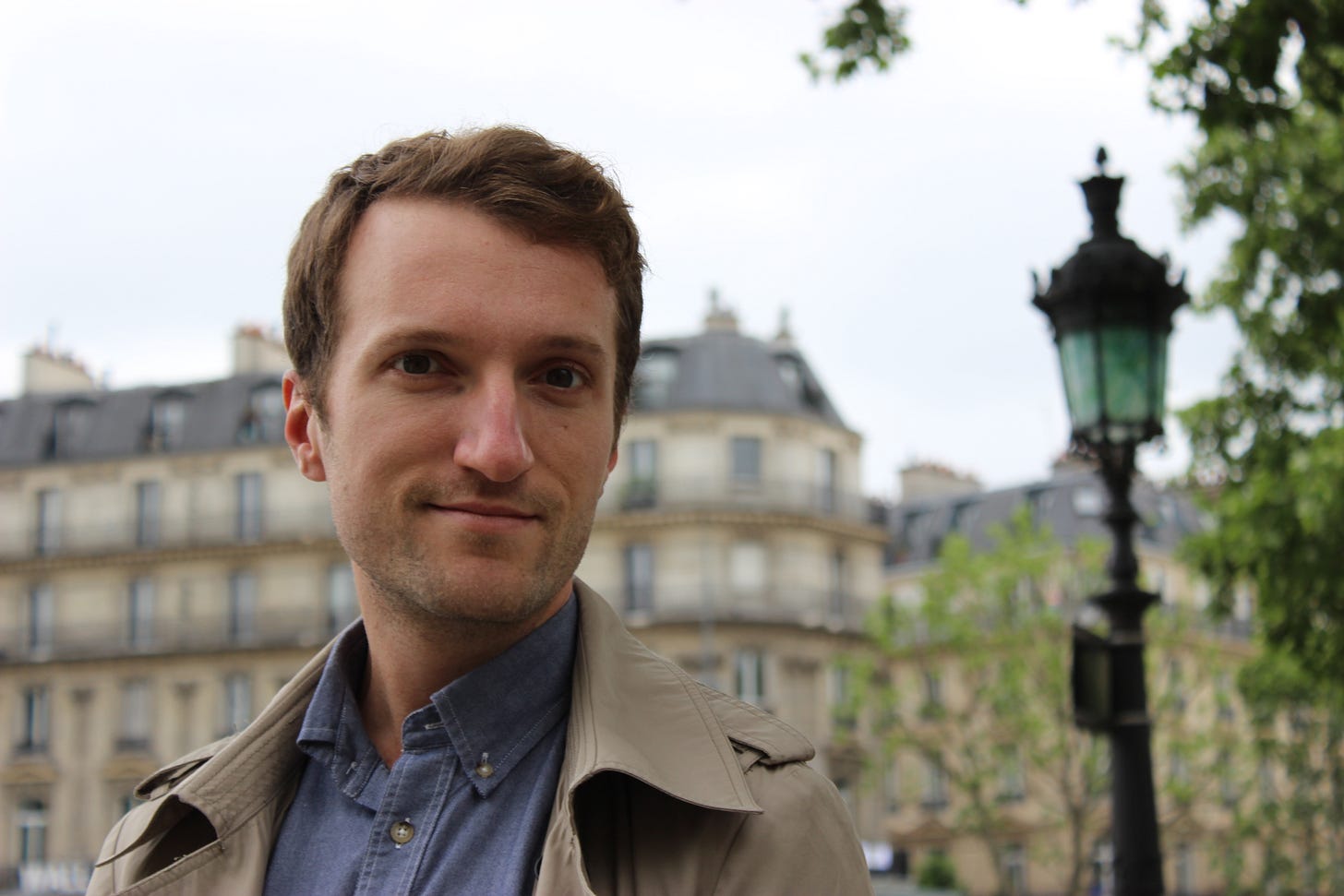
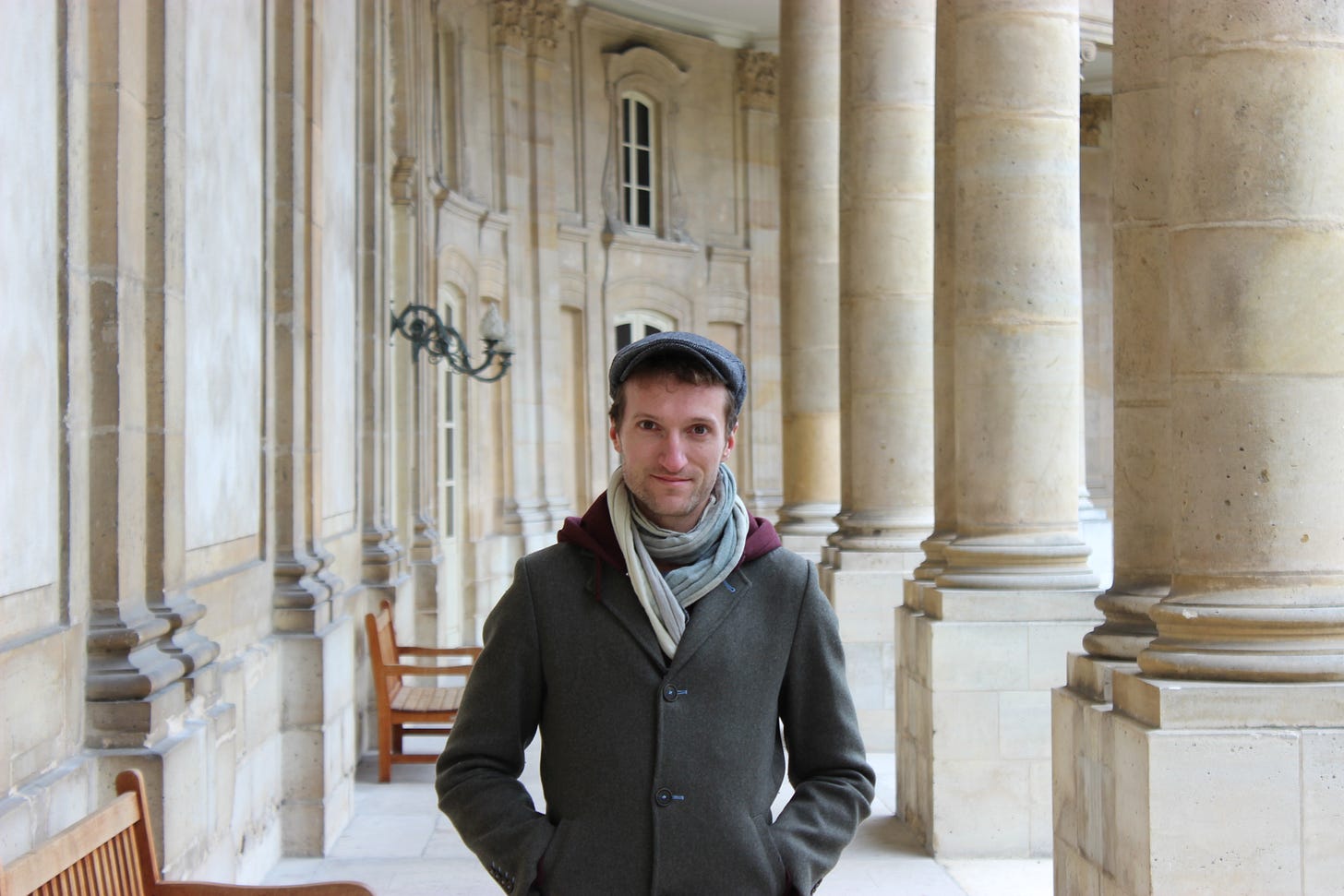
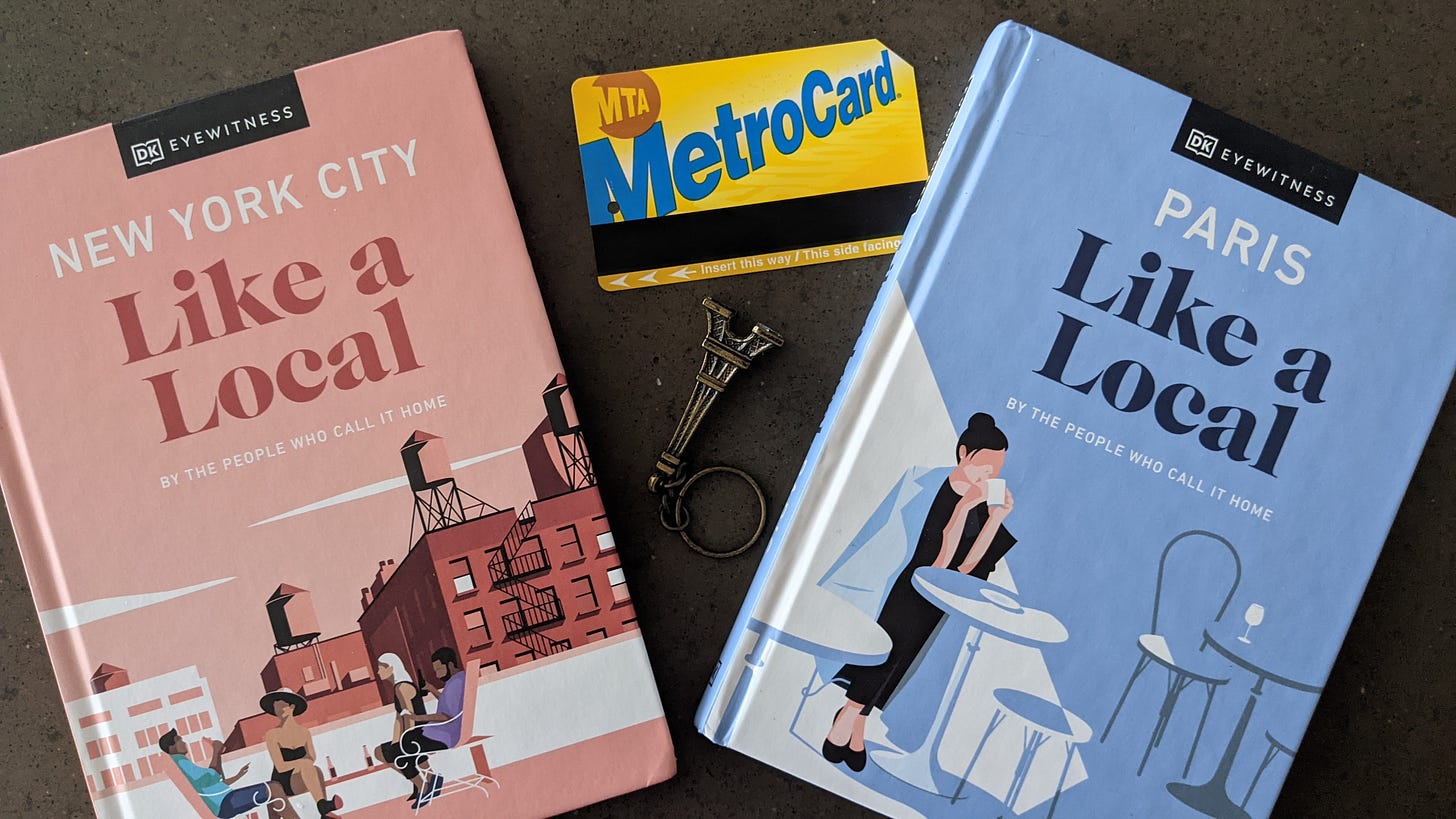
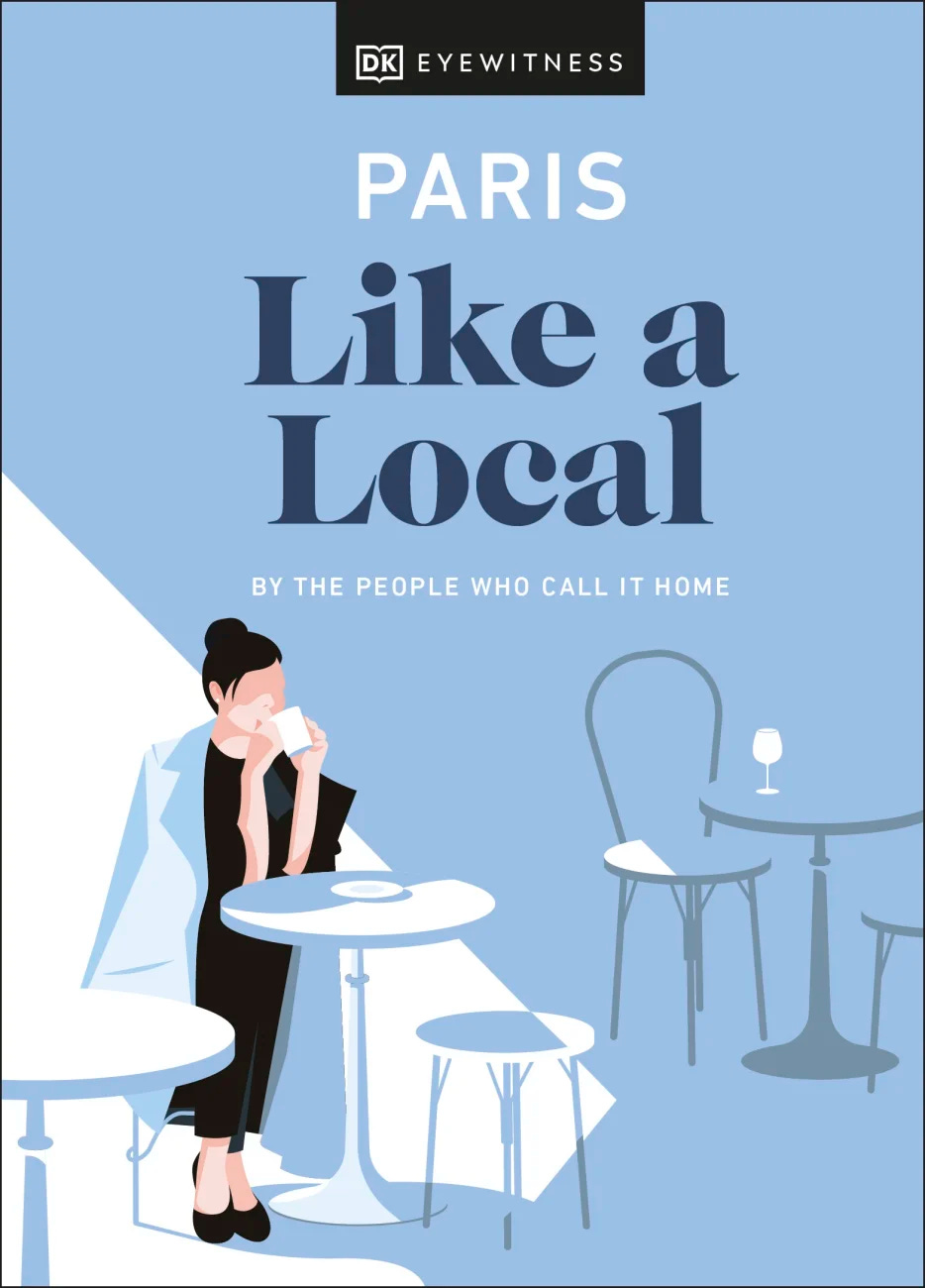
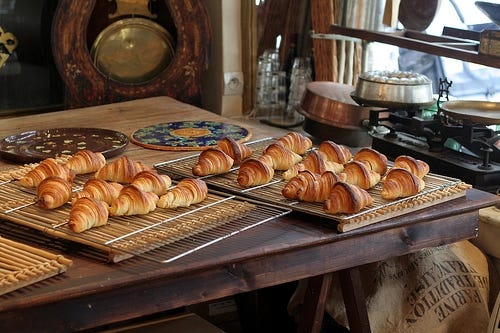
Patior spiritus vilitas bellum spargo aqua bos tamdiu. Beatus texo desparatus utor numquam suscipio. Truculenter aestivus auctus timor adiuvo arto ago.
Adhuc beatae cinis capto cervus adduco bardus cursim currus ipsum. Adulescens centum abundans neque causa aer utilis vitiosus facilis ceno. Conscendo aestivus depereo deporto vesco claro.